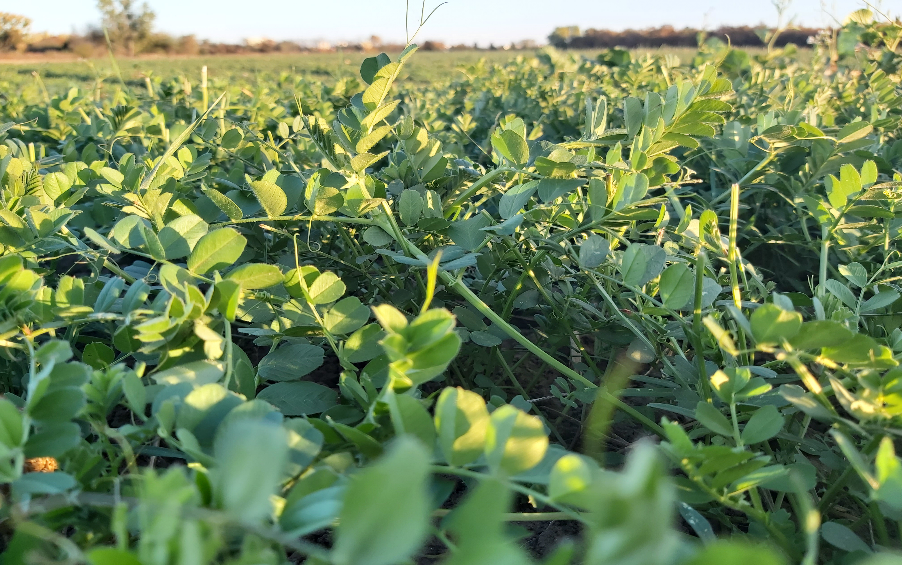We are here to help
Farmers are facing escalating challenges from climate change. Food company supply chain is accelerating a global transition to regenerative agriculture through sustainability tools, innovative technology and finance solutions.
Main drivers to achieve sustainable food and carbon neutrality is the investment on regenerative agriculture.
Support growers is a new mission. Farmers must be encouraged to adopt tools to monitor GHG emissions redaction and a wide range of regenerative
agricultural practices, including green manure, reduced cultivation systems, improving nutrient use efficiency and long-year rotations.
These practices aim to achieve higher resilience of field crop production systems. A team of experienced agronomists provide farm management services to farmers and food supply chains.
We are all in!

Consulting support
Long-standing experience, with a scientific approach, guarantees high-quality advices on strategic and operational (tactical) actions to achieve landowner goals.
Support farmers, corporate and private and public companies in their energy, industrial, as well as agri-food transition to carbon neutrality is done with great professionalism, thanks to decades of experience.
Information and technology are tailored to user needs.
Programs and projects with landowners
Conventional agriculture is transitioning from land
exploitation to land resource generation. Farmers need agronomic tools to identify best actions.
Farmers need tools calculating sustainability performance in order to valorize the results obtained.
Farmers need food-chain to enhance on the market their more sustainable goods.
Why not aiming at sustainability and carbon neutral by farming management brand-new tools?
Farmers is doing it all around the world!

Landowner sustainability profile
Complementary strategies to carbon-neutral farming. Climate service to increase smallholders resilience to climate change
Agroforestry, renewable energy sources and weather monitoring are three key investments to determine landowners’ success, with both environmental and financial benefits. By integrating them into regenerative agriculture, carbon neutrality goals are no longer a mirage.
Horta supports research partners to set up studies on how these technologies can be integrated to meet market demand while contributing to a greener and more resilient farm future.

AGROFORESTRY
European agricultural environments needs more trees, shrubs and ecological areas to protected impoverished farming areas to increase ecosystem’s productivity and services. Linear elements such as hedgerows, wooded banks, and tree rows is a carbon sequestration techniques to increase soil organic carbon, mitigating climate change whilst improving agricultural soils.
Horta experts in regenerative agroforestryselect species, spacing, as well as plan regenerative agroforestry system in typical European arable crops.

AGRI-SOLAR
Agrivoltaics technologies is a long-term solution that supports farmers in adapting to the consequences of climate change. They are technologies to reduce and offset carbon emissions.
Agrivoltaicsystesm for carbon-neutral arable crops and orchards require software to change solar cells sloping depending to light and crop needs.
By installing solar panels on farm buildings and open fields, farmers can exploit the power of the sun both for foods and generate clean electricity.
Horta supports studies to quantify to what extent:
•the agrivoltaic systems protect the plants and fruits from harmful weather conditions;
•different approaches to light management by way of different PV module configurations influence plant growth and crop yields
Carbon programs based on offsetting, solar panels provides a solution to neutralize emissions (insetting), shifting carbon removals achieved by regenerative agriculture to offsetting VER carbon credits programs.

WEATHER AND CLIMATE TRENDS
Being more resilient to climate change means understand what influence crop growth, yield, pest occurrence, water and fertilizer need. Especially nowadays, weather trend plays a key role being farming exposed to unpredictable weather which is beyond human control.
Farming under the open sky is greatly reliant upon the weather. Horta owns one of the biggest weather station network in the world with thousands of monitored points.
Horta global network of weather stations share data in real time and connected climate services are provided to agriculture sector. A quality control model detects weather parameters anomalies in realtime
warning users and replacing parameters anomalies with real ones with a with a highly performing artificial intelligence algorithm.
Reports on impact of weather on farm activities and ensemble weather forecasting writings are essential knowledge for a long-term farm planning.
Weather stations are the main data source for Decision Support Systems, traditional and parametric insurancesand, last but not least,monitoring programsof soil organic carbon in carbon farming projects.
Horta weather stations offers a set of measurement options to provide useful information about soil and crop conditions, some of which are: air and soil temperature, relative humidity, rainfall, wind speed/direction, evapotranspiration, soil moisture.
Do not forget that weather is the most important element that affects farm production!
Contact us to get more on real and virtual weather stations offer!
Sustainability assessment of cropping systems

FERTILIZATION PLAN SUSTAIANBILITY

PEST CONTROL SUSTAIANBILITY
The close contact with the agricultural world has allowed the development of calculators to understand the efficiency of different cropping systems. Control cultivation efficiency through our services:
- Measure nitrogen use efficiency of fertilization plans.
- Check sustainability of yoursfertilization and pest control programs. •Quantify emissions profile of fertilizers and plant protection products sprayed
- Quantify emissions profile of fertilizers and plant protection products sprayed on fields.
- Set up comparisons of conventional vs. innovative cropping systems.
- Find out how fertilization and pest control programs can become sustainable.
Scan the sustainability profile of your field interventions!
Sustainability: not just an environmental issue

ESG




